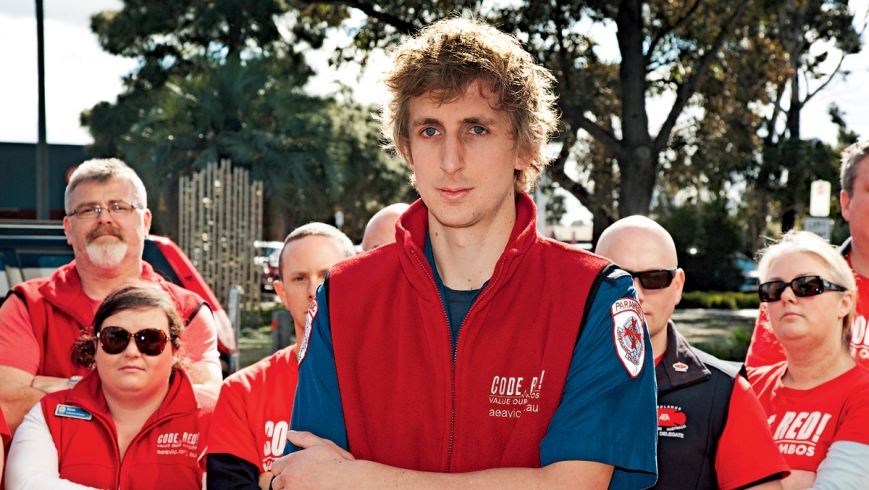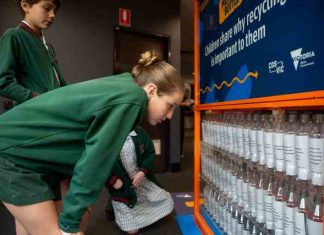HOBSONS Bay paramedic Dave Hammond switched on the sirens and began a frantic dash to Hoppers Crossing, where a three-year-old boy was suffering a seizure.
Mr Hammond and his partner, whose service area stretches from Altona to Werribee, were in Flemington on Wednesday night to help clear the inner-city backlog when the code-one call came in. They were the closest ambulance.
ANGER: Napthine does a runner from paramedics
It was 21 minutes before they managed to arrive and administer a sedative. The boy’s seizure continued another 20 minutes until they pulled into the Royal Children’s Hospital.
Mr Hammond says these close calls are a grim, twice-daily reality for paramedics working in the under-resourced western suburbs. “If the boy had gone into cardiac arrest, after 21 minutes CPR is proven to be futile,” he said.
Mr Hammond said the strain on paramedics was worsening as western suburbs population growth continued to outstrip resources. “It’s definitely become more fatiguing … I’m finding it more difficult to recover from my night shifts than I used to,” he said. “We’re driving increasing distances at higher speeds, so it puts yourself, your partner and the public at risk.”
Ambulance union’s Danny Hill said ambulances were spending more than 1300 hours a month waiting to transfer patients to wards at the west’s three biggest hospitals.
The union has been calling on the Napthine government to improve ambulance resources, reduce ambulance waiting times at hospitals and give its members a 30 per cent rise so their pay is in line with paramedics in other states. Mr Hill seized on comments by Health Minister David Davis claiming 18 minutes was a “normal” cardiac arrest response time.
“There is no one in the health profession who would say that’s acceptable,” Mr Hill said. “In Victoria, we have a 15-minute target and the health minister seems to be wanting to push it out to 18. It’s dangerous.”
Ambulance Victoria group manager Tony Elliott said the service had increased its resources in the outer-west this year.








